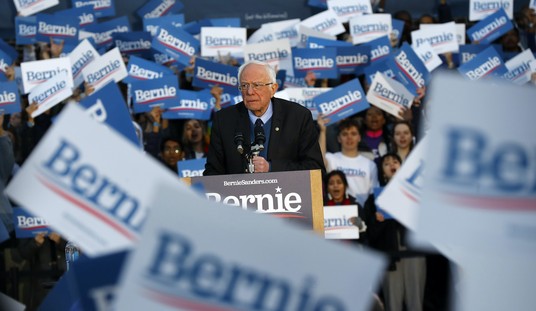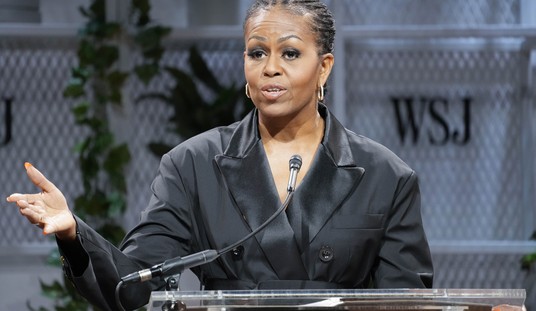The smooth nature of major-party presidential nominations in the primary era has produced a general electorate that remains blissfully unaware of how they work in practice. For the past 60-plus years, neither party has needed more than one ballot to nominate a candidate, although it has come close for both — 1976 for Republicans, 1984 for Democrats. Most Americans just assume that primaries and caucuses produce delegate allocations that remain bound to a candidate, and that the voting in each state will determine the nominee.
That’s … not always the case. The close race in the Republican nomination contest may come down to a handful of delegates who have no legal requirement to vote for the candidate selected in their state. All three candidates are conducting a parallel — and critical — pursuit of unbound delegates, a primary within the primary that could determine whether the GOP will need to go past a first ballot for the first time in more than 70 years:
While Donald Trump holds a healthy lead in the race, there’s still a decent chance he will fall short of the 1,237 delegates needed to clinch the nomination, meaning the GOP convention could be contested for the first time in 40 years.
Trump, as well as his two rivals, Sen. Ted Cruz and Gov. John Kasich, are assiduously preparing for that possibility. Aside from courting delegates who could become free agents during the convention, campaigns are also engaging in the tedious task of turning out their supporters at state and local conventions around the county in the coming months to fill delegate slots. …
But in some places, delegates have the ability to choose any candidate they want from the start. The biggest pots of these types of delegates fall in Colorado and Pennsylvania.
In Colorado, where Republicans decided not to hold a presidential nominating contest this cycle, 34 of the 37 delegates will be elected at the state convention April 9. The other three are the Colorado GOP chairman and the state’s two RNC members, all of whom will remain uncommitted until the July convention.
Pennsylvania’s upcoming primary elects delegates directly without binding them to a particular candidate. Between Pennsylvania and Colorado, that puts 88 delegates up for grabs, and all three remaining campaigns are wooing those delegates to gain more traction in Cleveland. But those aren’t the only prizes available, National Journal’s Alex Rogers and Adam Wollner remind us; Marco Rubio had 166 delegates before he withdrew, and the majority of those will come to Cleveland as free agents, too.
We could see as many as 150 unbound delegates or more come to the convention, free to cast their first-ballot vote as they please. That’s more than 10% of the number needed to win a majority. It won’t matter if one candidate comes to Cleveland with a majority of bound delegates, but that might be a tough feat for either Trump or Cruz. And the delegate allocations thus far aren’t necessarily firm either, as Team Trump discovered in Louisiana:
Donald Trump beat Sen. Ted Cruz earlier this month in Louisiana’s Republican presidential primary by 3.6 percentage points, but the Texan may wind up with as many as 10 more delegates from the state than the businessman.
Mr. Cruz’s supporters also seized five of Louisiana’s six slots on the three powerful committees that will write the rules and platform at the Republican National Convention and mediate disputes over delegates’ eligibility this summer in Cleveland.
The little-noticed inside maneuvering that led to this outcome in Louisiana is another dramatic illustration of the inside game that could have an outsize influence on the bitter race for the GOP nomination. A similar process played out three weeks ago in Coweta County, Ga.
None of this gamesmanship is new, by the way. Ron Paul’s movement took advantage of these same mechanisms in 2012 to snag delegates in some caucus states away from Mitt Romney and Rick Santorum, including here in Minnesota. (I attended the state convention where that took place.) Romney’s delegates controlled the Rules Committee, which passed Rule 40 to deal with the situation by requiring a candidate to have a majority of delegates in eight states to have his or her name placed in nomination. That squelched their hopes of hijacking the convention, but it still shows the importance of organization in dealing with close conventions.
Most of the time, these machinations would mean nothing. It won’t mean anything for the Democrats this year, because Hillary Clinton will come into Philadelphia with a large majority over Bernie Sanders, even apart from the superdelegates. In close races, though, the ability to work the system becomes very important.
As Scott Rasmussen reminds us at Styrk, that’s only true if Cruz can keep Trump from a majority before the final primaries on June 7th:
For any of this to matter requires one big assumption-Ted Cruz will have to find a way to beat Donald Trump in the remaining states. Cruz currently trails Trump by 274 delegates. If he can win just over half of the nearly 1,000 remaining delegates, he will pull to within 200 delegates of Trump’s total heading into the Primary of the Unbound Delegates.
In that scenario, Cruz could enter the convention in first place by winning about two-thirds of the unpledged delegates. Given the nature of those delegates, that’s not an unreasonable goal. Some come from states where Cruz did well. Others were initially pledged to candidates who prefer Cruz over Trump. It’s even possible that the unbound delegates could deliver a first ballot victory to the Texas Senator.
That’s what the numbers tell us, but the voters will decide if it’s what they want. The only way that Ted Cruz can win the nomination is to defeat Donald Trump in the remaining primaries. If he can’t do that, the unbound delegates are unlikely to save him.
Not just unlikely, but darned near impossible. Not all of those unbound delegates will reject Trump, after all, and if the frontrunner comes in a few dozen shy of 1237, there will be a very big impulse to go along with the momentum and back Trump for the nomination. If he’s significantly short, however, all bets are off — and the fun begins in Cleveland.








Join the conversation as a VIP Member